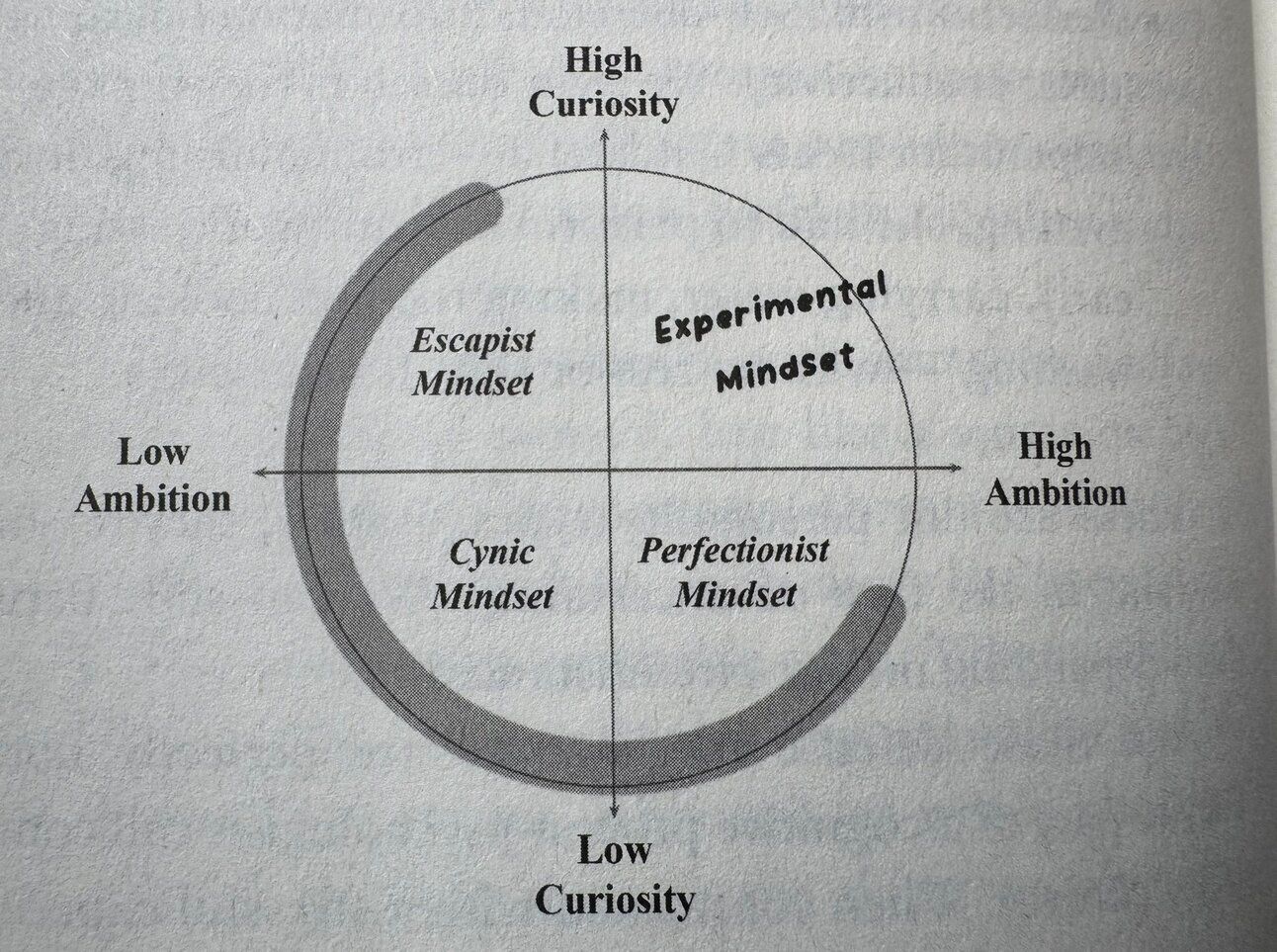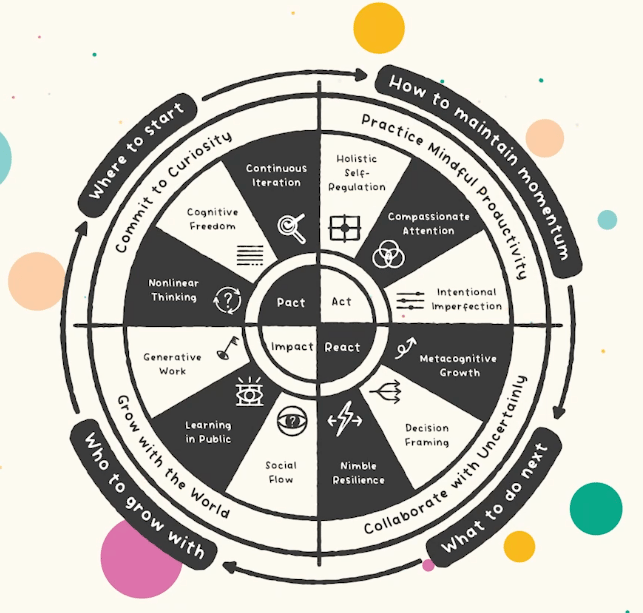Happy Tuesday, founders,
A few weeks ago, I mentioned that I was stepping into the unknown with a new project - it felt equal parts exhilarating and nerve-wracking. That ‘new’ thing, or my new tiny experiment, is finally coming to life in 3 months: we’re launching Insane Founder mini-documentary series with 10 founders.
In the mini-documentary series Insane Founder, I follow founders through a day in their life, capturing raw conversations about the reality of building from scratch. Each short, cinematic episode blends honesty with strategy - made for those who value depth, transparency, and real business insight.
I was lucky to have one of my favorite founders, writers, and neuroscientists, Anne-Laure Le Cunff, as one of our very first guests. We wandered through London on an oddly hot day - from her neuroscience lab to her home office to the publisher behind her best-selling book. We talked, walked, laughed. It felt raw and grounding.
Her book, Tiny Experiments: How to Live Freely in a Goal-Obsessed World, has stayed with me ever since.
It’s packed with mind-shifting frameworks that are surprisingly actionable - especially for entrepreneurs and ambitious individuals who’s chasing “the next thing” and the “it’s never enough” unconscious script. For those of us who, deep down, may be driven by fear of being unloved, or anxiety around financial stability and self-worth. Who develop toxic work habits. Who know their inner critic a little too well.
Anne-Laure introduces a gentler, more curious approach. One that doesn’t reject ambition, but reframes it. She offers “tiny experiments” - small, intentional shifts that help you reconnect with your internal compass while continuing to grow.
Now, let’s dive into a newsletter trailer for her book.
If you received this newsletter from a friend, you can sign up here to get it every Tuesday.
Partnered with Notion
Thousands of startups use Notion as a connected workspace to create and share docs, take notes, manage projects, and organize knowledge—all in one place.
We partnered with Notion to give you up to 6 months free of new Plus plans, including unlimited Notion AI (up to 6,000$ in value)!
🧠 From goal-chasing to mindset-shifting
We like to think we’re building businesses from a place of clarity and ambition. But beneath the surface, many founders are simply trying to outrun a sense of unease. Not because they don’t love the craft - but because slowing down feels dangerous. Stillness invites doubt. The quiet moments reveal how much of our drive is tangled in proving something: to investors, to our parents, to that version of ourselves we’ve been dragging forward for years.
In Tiny Experiments, Anne-Laure Le Cunff reframes this loop. She argues that most of us operate from either a Perfectionist, Escapist or Cynical mindset:
The Perfectionist pushes harder, hoping achievement will quiet the inner critic.
The Cynic avoids trying altogether, numbed by the pressure to succeed.
The Escapist excessive dream planning, drinking, shopping
Both are reactions to the same thing: an unhealthy relationship with goals.
What if we approached life, and work, with curiosity instead of control?

🧪 A 3rd Way: The Experimental Mindset
The Experimental mindset replaces pressure with play. Instead of rigid goals, we set hypotheses. Instead of pass/fail thinking, we gather feedback. This doesn’t mean we abandon ambition - it means we redefine what success looks like.
Experiments are containers for self-compassion, they give us a way to try without self-judgment.
For founders constantly iterating in public, this shift can be radical. It turns your personal growth into a lab - not a performance.
🪞 You’re not a machine. You’re a system.
Another key idea from the book: our internal world operates on three levels - the Hand, the Head, and the Heart.
The Hand focuses on what you do - productivity, behaviour, habits.
The Head is what you think - goals, analysis, narratives.
The Heart reflects how you feel - emotions, values, intuition.
Most founders over-index on Hand and Head. We build from logic and action. But when the Heart is ignored, we become brittle - detached from our why, easily thrown off course, or susceptible to burnout.
Checking in with all three is how you build with depth, not just speed.
🛠️ A toolkit for living (and building) differently
Anne-Laure doesn’t stop at theory - Tiny Experiments includes a concrete framework to put this into action.

Each tool in the framework is meant to be:
Tiny → no overwhelm, no friction, no all-or-nothing traps
Reversible → you can stop any time, no identity crisis
Measurable → so you learn something from every try
Here are three you can try this week:
Goal Detox: Drop one metric you’ve been obsessing over. Replace it with a feeling. (e.g. “aliveness” instead of “output”)
Emotion Tracker: At the end of each workday, rate your energy and write one line about why. Patterns will emerge.
Success Reframe: Rewrite your definition of success as if no one else would see it. What changes?
💡Why this matters for founders
Founders are constantly experimenting with ads, products or services we’re launching. But what if we applied the same mindset to our personal development?
A study by Nesbit (2012) showed that entrepreneurs with higher self-reflection and emotional regulation were more resilient through setbacks. Transactional Analysis theory - particularly the concept of ego states (you can read my last week’s article about this here) - aligns with this, suggesting that moving from Parent (judgmental or over-controlling) and Child (reactive or approval-seeking) into Adult (curious, grounded) creates healthier patterns of thought and leadership (Joines & Stewart, 2012).
We don’t just burn out from overwork. We burn out from misaligned goals, borrowed metrics, and ignoring their own internal feedback systems.
Anne-Laure’s work helps us return to our own centre - not just to feel better, but to build better.
✨ Without giving away too much — Anne-Laure’s book is packed with practical tools, deep insight, and compassionate thinking for anyone trying to create something meaningful without losing themselves in the process.
If that sounds like you, here’s the link to read more:
As always, hit reply if something in here hits home.
Until next week,
Lavena
How do you find today's edition? ☕☕☕
If you’re new here, I’m over the moon you’ve joined us! To help me craft content that’s actually useful (and not just noise in your inbox), I’d love it if you took 1 minute to answer this quick survey below. Your insights help shape everything I write.


